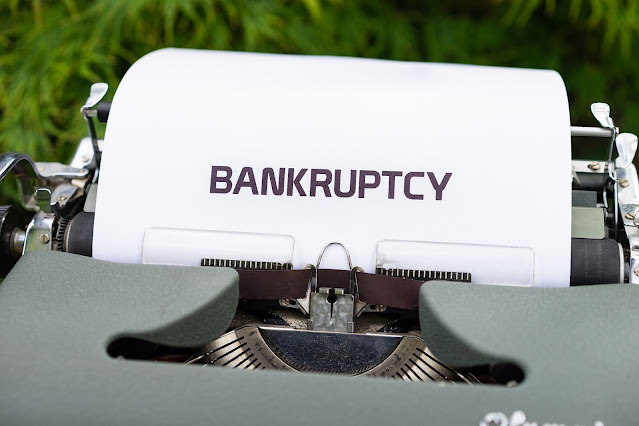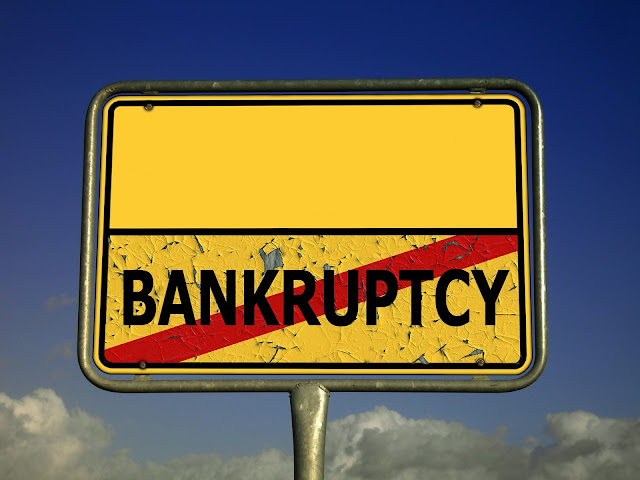Find Debt Relief with a Bankruptcy Lawyer: A Guide to Bankruptcy Options
Bankruptcy can be a confusing and overwhelming experience for anyone facing overwhelming debt. The process involves navigating complex laws, filling out lengthy forms, and appearing in court. This is why it is essential to seek the help of a bankruptcy lawyer to guide you through the process and help you find debt relief.
The purpose of this article is to provide a comprehensive guide on how to find debt relief with a bankruptcy lawyer. The article will cover important topics such as what bankruptcy is, who can file for it, how to find a qualified bankruptcy lawyer, and how the bankruptcy process works.
The MECE (Mutually Exclusive and Collectively Exhaustive) framework will be used to organize the content of the article. This framework helps to break down complex topics into smaller, more manageable pieces, making it easier to understand and retain the information.
The introduction will provide a brief overview of the purpose of the article and explain the MECE framework. It will also highlight the importance of seeking the help of a bankruptcy lawyer in finding debt relief and provide information on the word count for each subheading.
What is Bankruptcy?
Bankruptcy is a legal process that provides individuals and businesses with a way to eliminate or repay their debts. The process is governed by federal law and is administered by the bankruptcy courts.
There are several different types of bankruptcy, including Chapter 7, Chapter 11, and Chapter 13. Chapter 7 bankruptcy is also known as a "liquidation" bankruptcy, as it involves selling off some of the debtor's assets to repay their debts. Chapter 11 bankruptcy is designed for businesses and allows them to reorganize their finances while continuing to operate. Chapter 13 bankruptcy is designed for individuals with a regular income and involves creating a repayment plan to pay off their debts over a period of three to five years.
The bankruptcy process begins with the filing of a petition with the bankruptcy court. The court will then review the petition and either approve or deny the bankruptcy. If the bankruptcy is approved, the debtor's assets will be sold or their repayment plan will be put into action.
The benefits of bankruptcy include the elimination of most unsecured debts, the protection of assets from creditors, and a fresh start for the debtor. However, it is important to note that bankruptcy will have a negative impact on the debtor's credit score.
Who Can File for Bankruptcy?
A bankruptcy lawyer can help determine whether a person is eligible to file for bankruptcy and what type of bankruptcy would be best for their situation. The lawyer will review the person's financial situation, including their debts, assets, income, and expenses, and make a recommendation.
Filing for bankruptcy will have a negative impact on the person's credit score, but it can also provide much-needed relief from overwhelming debt. The impact on credit score will depend on the type of bankruptcy filed and how the individual manages their finances after the bankruptcy is complete.
How to Find a Bankruptcy Lawyer?
Finding a qualified bankruptcy lawyer is an important step in the bankruptcy process. A bankruptcy lawyer can help guide the individual through the process, ensure that their rights are protected, and provide valuable advice and support.
The first step in finding a bankruptcy lawyer is to conduct research. The individual can ask friends, family members, and colleagues for recommendations, or they can search online for lawyers in their area who specialize in bankruptcy law. It is also a good idea to read reviews and check the lawyer's credentials, such as their education, experience, and professional affiliations.
Once the individual has found a few potential lawyers, they should schedule a consultation to meet with each one and discuss their case. During the consultation, the lawyer should be able to answer questions and provide information on the bankruptcy process, including the cost, the individual's rights, and the next steps.
It is important to choose a lawyer who is experienced, knowledgeable, and dedicated to helping their clients find debt relief. A bankruptcy lawyer should also be professional, ethical, and easy to communicate with.
How Does the Bankruptcy Process Work?
The first step in the bankruptcy process is to file a petition with the bankruptcy court. The petition must include detailed information on the individual's financial situation, including their debts, assets, income, and expenses.
Once the petition has been filed, the court will appoint a trustee who will oversee the case. The trustee's role is to ensure that the individual's assets are sold or their repayment plan is put into action.
Next, the individual must attend a meeting of creditors, where they will answer questions from their creditors and the trustee. The individual must also complete a credit counseling course and provide the court with a certificate of completion.
If the bankruptcy is approved, the individual's debts will be discharged or their repayment plan will begin. The discharge of debts will provide the individual with a fresh start and relief from their overwhelming debt.
The bankruptcy process can take several months to complete, and it is important to follow all of the court's instructions and attend all scheduled meetings. A bankruptcy lawyer can help ensure that the process goes smoothly and the individual is able to find debt relief.
Conclusion
Filing for bankruptcy can be a difficult decision, but it can also provide much-needed relief from overwhelming debt. A bankruptcy lawyer can help individuals navigate the complex process and ensure that their rights are protected.
The bankruptcy process begins with the filing of a petition with the bankruptcy court. The court will then appoint a trustee who will oversee the case and ensure that the individual's assets are sold or their repayment plan is put into action.
To find a qualified bankruptcy lawyer, individuals should conduct research, read reviews, and schedule consultations with potential lawyers. The lawyer should be experienced, knowledgeable, and dedicated to helping their clients find debt relief.
The bankruptcy process can take several months to complete, and it is important to follow all of the court's instructions and attend all scheduled meetings. With the help of a bankruptcy lawyer, individuals can find debt relief and a fresh start.
FAQs
What is bankruptcy?
Bankruptcy is a legal process that provides individuals with a fresh start by discharging their debts or creating a repayment plan.
Who can file for bankruptcy?
To be eligible to file for bankruptcy, the individual must meet certain criteria, such as having a certain amount of debt and passing a means test. A bankruptcy lawyer can help determine whether the person is eligible to file for bankruptcy.
What are the types of bankruptcy?
The two most common types of bankruptcy are Chapter 7 and Chapter 13. Chapter 7 involves the liquidation of assets to pay off debts, while Chapter 13 involves a repayment plan to pay off debts over a period of three to five years.
What is the impact of bankruptcy on credit score?
Filing for bankruptcy will have a negative impact on the person's credit score, but it can also provide much-needed relief from overwhelming debt. The impact on credit score will depend on the type of bankruptcy filed and how the individual manages their finances after the bankruptcy is complete.
How can I find a bankruptcy lawyer?
The individual can ask friends, family members, and colleagues for recommendations, or they can search online for lawyers in their area who specialize in bankruptcy law. It is also a good idea to read reviews and check the lawyer's credentials, such as their education, experience, and professional affiliations.
What is the role of the bankruptcy lawyer in the process?
A bankruptcy lawyer can help guide the individual through the process, ensure that their rights are protected, and provide valuable advice and support. The lawyer will also review the person's financial situation and make a recommendation on the best type of bankruptcy for their situation.
What is the cost of filing for bankruptcy?
The cost of filing for bankruptcy can vary depending on the type of bankruptcy filed, the lawyer's fees, and other costs associated with the process. A bankruptcy lawyer can provide an estimate of the cost of filing for bankruptcy and explain the various fees involved.
What happens after I file for bankruptcy?
After filing for bankruptcy, the individual will attend a meeting of creditors, complete a credit counseling course, and provide the court with a certificate of completion. If the bankruptcy is approved, the individual's debts will be discharged or their repayment plan will begin.
Can all my debts be discharged in bankruptcy?
Not all debts can be discharged in bankruptcy. For example, student loans, child support, and most tax debts cannot be discharged. A bankruptcy lawyer can review the individual's debts and provide more information on which debts can and cannot be discharged in bankruptcy.
How long does the bankruptcy process take?
The bankruptcy process can take several months to complete. The length of the process will depend on the type of bankruptcy filed, the complexity of the case, and the individual's compliance with the court's instructions and requirements.
Can I keep my property if I file for bankruptcy?
The individual may be able to keep some or all of their property in bankruptcy, depending on the type of bankruptcy filed and the exemptions available in their state. A bankruptcy lawyer can provide more information on the exemptions available in their state and help the individual keep their property in the bankruptcy process.
Can I still get credit after filing for bankruptcy?
The individual may still be able to get credit after filing for bankruptcy, but it may be more difficult and have a higher interest rate. The individual should work with their bankruptcy lawyer to rebuild their credit and improve their financial situation after the bankruptcy is complete.
How does bankruptcy affect my spouse?
If the individual is married, their spouse may be affected by the bankruptcy. For example, if the couple owns property together, the property may be sold to pay off debts in a Chapter 7 bankruptcy. A bankruptcy lawyer can provide more information on how bankruptcy may affect the individual's spouse.





Post a Comment for "Find Debt Relief with a Bankruptcy Lawyer: A Guide to Bankruptcy Options"
Post a Comment